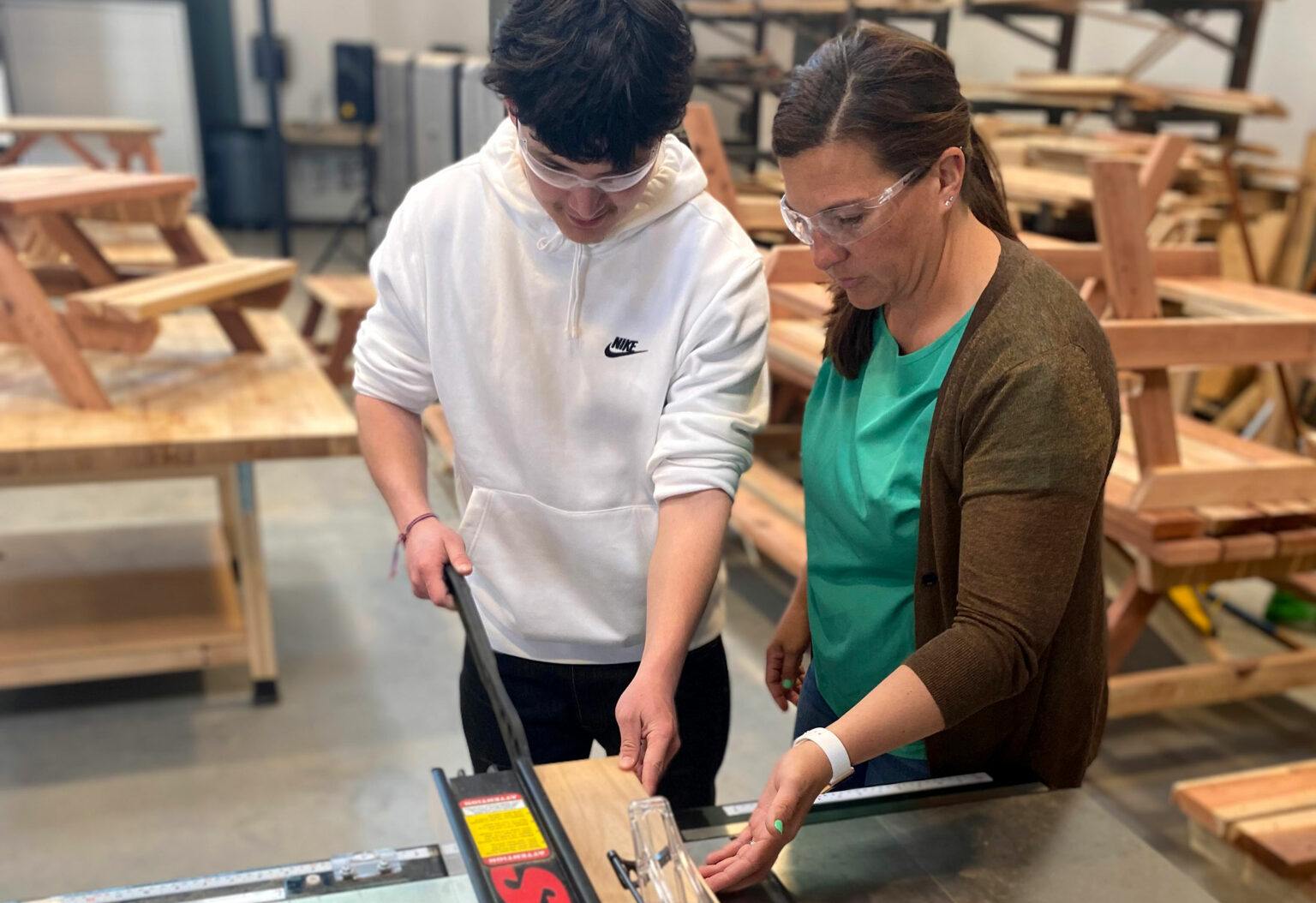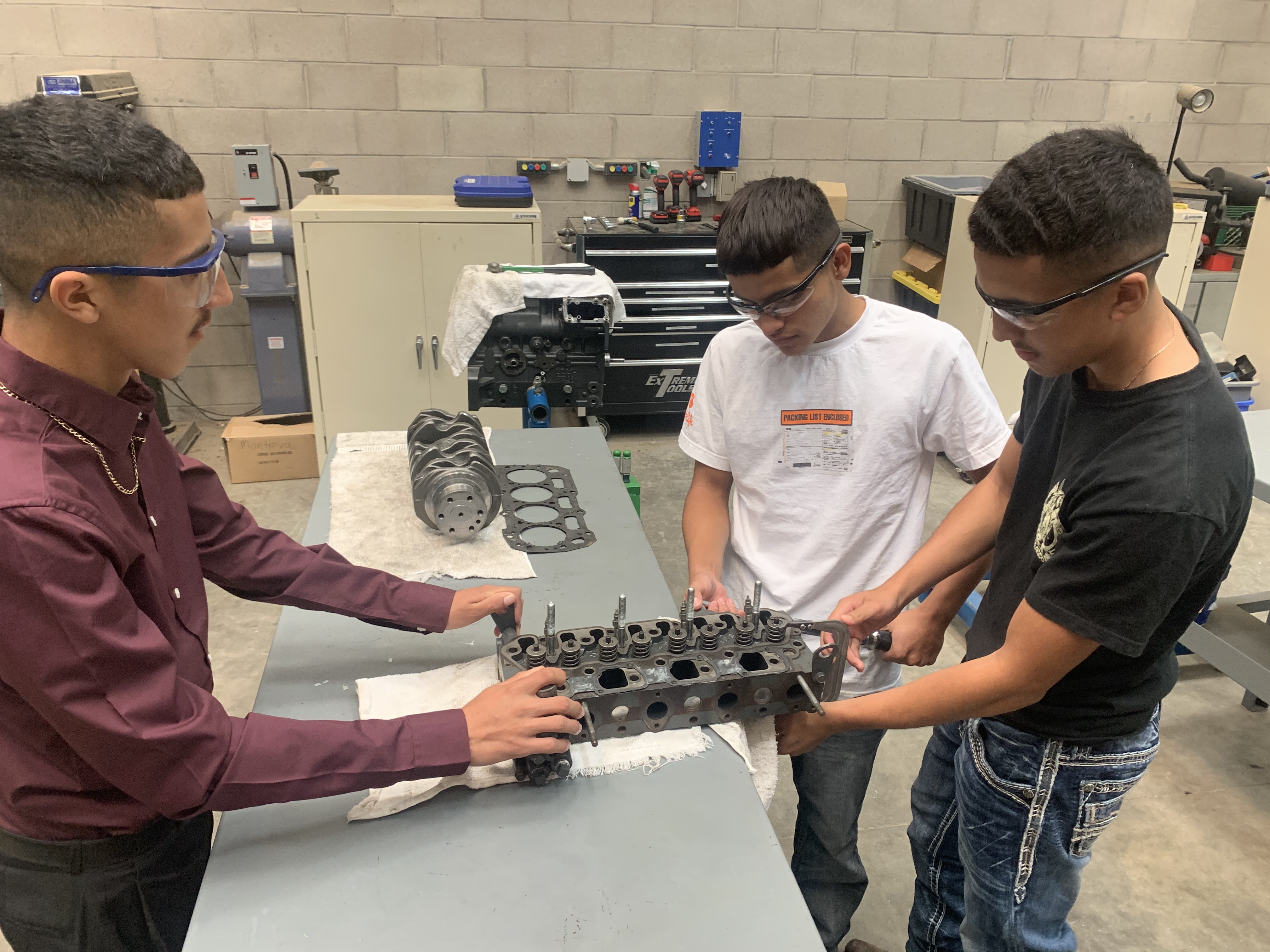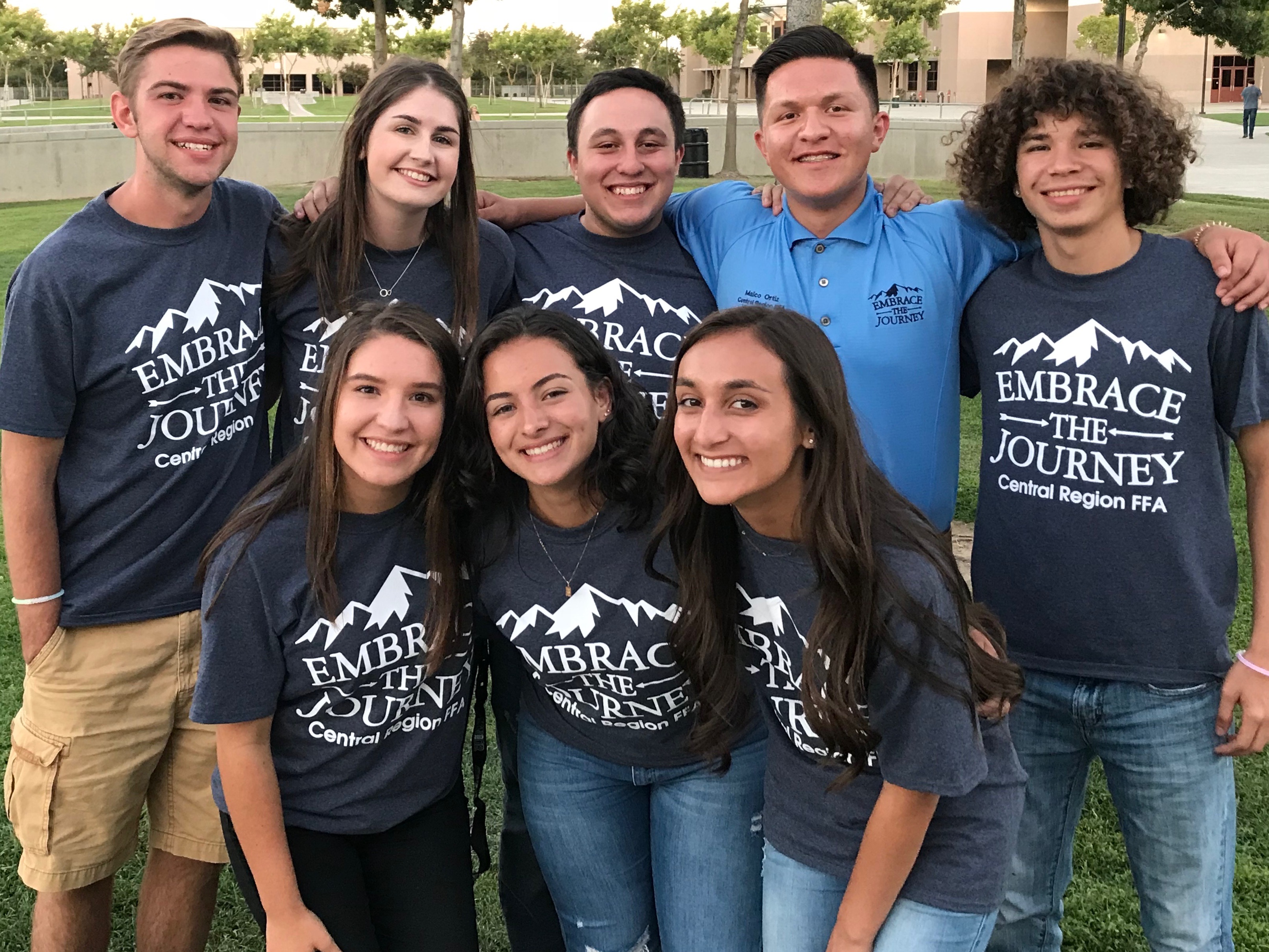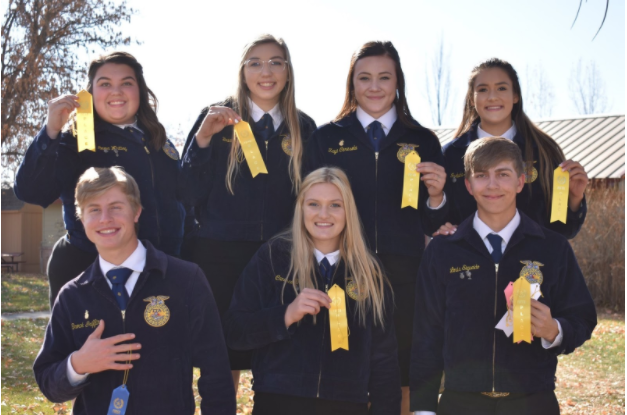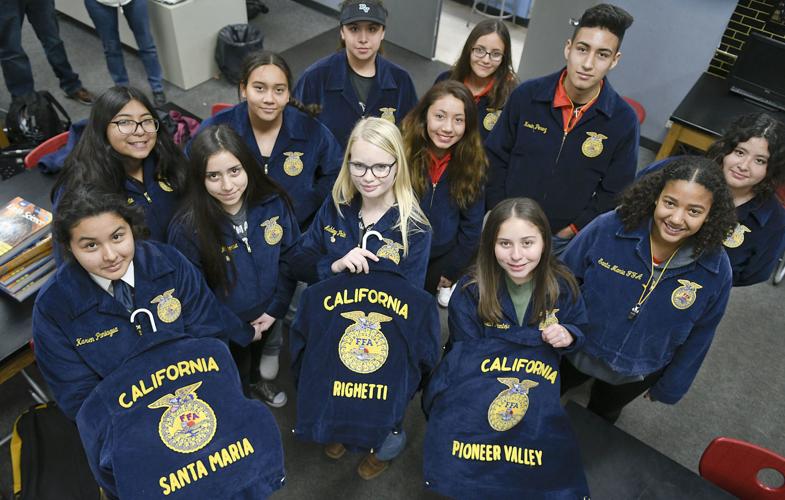Can you tell us a bit about your background and your experience with FFA?
I was a four-year member of FFA, starting in Hughson FFA and finishing in Oakdale FFA. I got connected with FFA when I signed up for an ag class, which automatically made me an FFA member. I was a rodeo kid growing up, and I've also been involved with agriculture my entire life. My family farms everything from rice to almonds to cattle, so I’m familiar with a few different facets.
What is your job and how did you choose your career path?
I’m a grower relations representative for RPAC LLC., an almond processor in Los Banos. My region covers Modesto to Red Bluff. I work with growers on a day-to-day basis, trying to sign up prospective customers to bring nuts into our facilities, while assisting our current growers with any issues they may have, whether it’s deciding on what variety to plant next or understanding what's going on with the market. I went to school in Texas, and I moved back to California because there were so many more opportunities in agriculture. I didn't necessarily think the almond industry was where I was going to end up, but as I got involved I realized it’s a great industry to work in. I really enjoy where I work, and we are in a growth stage, so it's been very fun. I also found that grower relations is something that I really enjoy because I get to go out and talk to people every single day and hear what's actually going on in the industry.
We understand that you were involved in the Almond Board of California’s Almond Leadership Program (ALP) in 2022. Why did you choose to participate in the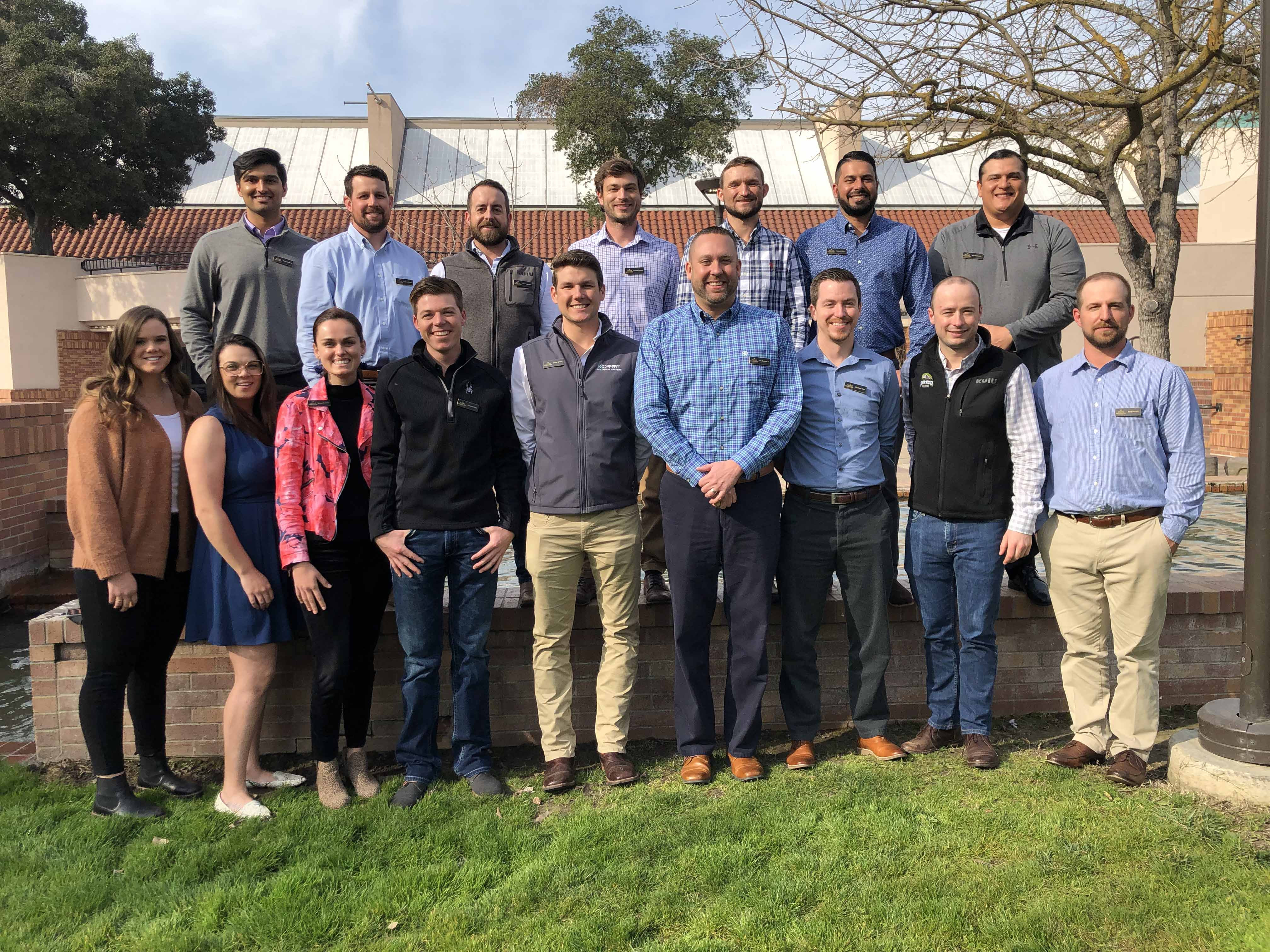 Almond Leadership Program?
Almond Leadership Program?
When I started working at RPAC, I found that I had limited experience in California agriculture outside what I had done in high school and growing up. I started looking at educational opportunities beyond what I could find online and on the Almond Board of California website. I was familiar with the California Agricultural Leadership Program (Ag Leadership) because my supervisor is a graduate of the program, but I knew I wasn’t quite ready for that, so the Almond Leadership Program (ALP) looked like a great stepping stone. I had about one year of almond industry experience under my belt before I was accepted into the program in 2022. I was very green, but I learned that you don’t necessarily need to be involved directly in the industry to go through the program. Obviously it helps, but many almond-adjacent careers can also find it beneficial. The connections you make in ALP are outstanding, and they really do last a lifetime. I appreciate how fun, flexible, and stress-free ALP was, but at the same time, there was a lot to gain from the program.
You are currently a fellow in the California Agricultural Leadership Program (Ag Leadership) Class 54. Tell us more about the experience thus far.
Ag Leadership is a much more intense program, and it’s a lot more difficult to get into due to the number of people who apply each year. There’s a lot more classroom instruction and homework compared to ALP, but it helps you understand yourself through self-assessments and by setting personal and professional goals. When you apply, it’s something you need to be ready for because it’s an 18-month course that requires a lot of attention and asks a lot out of yourself, your family, and your spouse. For reference, I’m 26, single, and don’t have any kids, so for me it made a lot of sense, but I’m also one of the youngest in the class. One thing they always tell you throughout the interview process is that if you don’t get in, you can always reapply. Many times, your application and interviews might be extremely good, but maybe the panel felt you weren’t a fit for the group they’re trying to build. The class is comprised of 24 individuals from across the state, so it’s a very competitive process, but I encourage anyone who feels ready to apply and try it out.
What kind of skills did you learn from each of these programs?
Communication skills and networking among your peers have been very beneficial in both ALP and Ag Leadership. Sometimes it’s difficult to be thrown into a group of people whom you don’t know, but it’s helpful to know that everyone is going through the same thing as you. It’s also important to remember that you are meant to be there and that you deserve a seat at the table. ALP and Ag Leadership also really exercise your public speaking skills. You’re required to do multiple presentations, speeches, and introductions, so it’s more than just reading off a PowerPoint. Lastly, these programs really make you uphold responsibility. You have different deadlines and assignments to complete, and you don’t want to be the person who falls behind in your class.
How did your FFA experience prepare you for these programs?
Even though I wasn’t super involved in my FFA chapter, I can speak to what I’ve seen FFA do for others and how it relates to these programs. FFA draws on a lot of the same concepts that are used in ALP and Ag Leadership, like public speaking, community engagement, and even the structure. If you start working on these things as a high school student, it’s going to give you more experience and help you succeed in these programs, and I feel FFA provides a really strong base to utilize those tools.
 What advice would you give to young adults in agriculture interested in pursuing these two programs?
What advice would you give to young adults in agriculture interested in pursuing these two programs?
Get involved in the industry. Get a foothold in understanding what you want to do and then these programs will fall into place. ALP and Ag Leadership are just two, but there are programs throughout the state and within different commodities. If you aren't truly involved with agriculture, build a base and start networking now. Figure out what your goals are for the long-term and short-term, and then see which programs best fit your needs. Another thing to remember is, don't be afraid to be the young person in the room. Many people are actually happy to see a young person in these roles because it gives them optimism that the next generation is interested and invested in agriculture.

